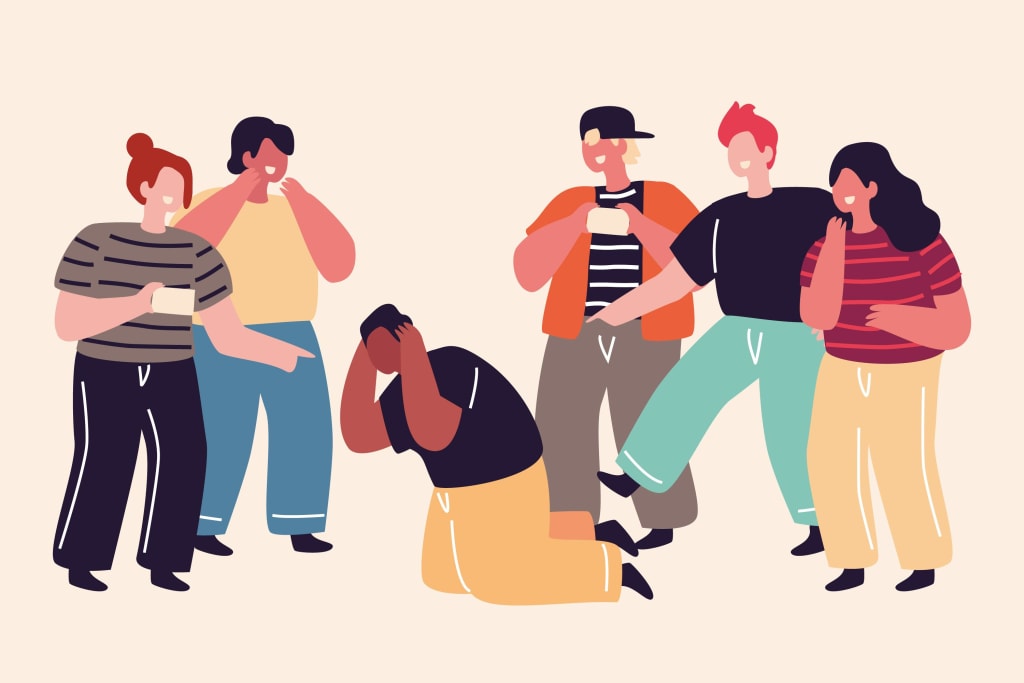
What is Social-Phobia ? 🤔
Social phobia, also known as social anxiety disorder, is a type of anxiety disorder characterized by intense and persistent fear or anxiety in social situations. People with social phobia experience extreme anxiety and distress in a variety of social situations, including social gatherings, parties, public speaking, and even eating in public.
Symptoms of social phobia can include physical symptoms such as sweating, shaking, blushing, rapid heartbeat, and nausea, as well as cognitive symptoms such as excessive worry about being negatively evaluated by others, fear of embarrassment or humiliation, and a belief that one's anxiety is visible to others.
Social phobia can interfere with an individual's daily life, making it difficult to form relationships, attend school or work, and engage in normal social activities. Treatment for social phobia may include therapy, medication, or a combination of both. Cognitive-behavioral therapy is a common treatment option and can help individuals learn to manage their anxiety and improve their social skills.
Reasons For causing Social-Phobia
The exact causes of social phobia are not fully understood, but research suggests that a combination of genetic, environmental, and psychological factors may play a role. Some of the factors that may contribute to the development of social phobia include:
- Genetics: Studies have shown that social phobia tends to run in families, suggesting that there may be a genetic component to the disorder.
- Brain chemistry: Imbalances in certain brain chemicals, such as serotonin, may contribute to the development of social phobia.
- Environmental factors: Traumatic experiences, such as bullying or humiliation in social situations, may increase the risk of developing social phobia.
- Learned behavior: Individuals may learn to fear certain social situations through negative experiences or modeling the behavior of others.
- Personality factors: People who are naturally shy, self-conscious, or overly concerned with what others think may be more likely to develop social phobia.
It is important to note that social phobia is a complex disorder, and there is no single cause. Instead, it is likely that a combination of these factors, along with individual differences in temperament and life experiences, contribute to the development of the disorder.
Kinds Of Social-Phobia
There are several different types of social phobias, each characterized by fear or anxiety in specific social situations. Here are some of the most common types:
- Performance anxiety: Fear of performing or speaking in front of an audience, such as public speaking, giving a presentation, or performing on stage.
- Interpersonal anxiety: Fear of interacting with others, such as meeting new people, going on a date, or attending a social gathering.
- Generalized social phobia: Fear of a wide range of social situations, including both performance and interpersonal situations.
- Specific social phobia: Fear of a specific social situation, such as using public restrooms, eating or drinking in public, or writing in front of others.
- Non-generalized social phobia: Fear of specific situations that do not involve social interaction, such as fear of heights or enclosed spaces.
It is important to note that while there are different types of social phobias, many individuals may experience symptoms across multiple types. Treatment for social phobia is typically tailored to the individual's specific fears and symptoms.
How To Overcome This Phase ?
- Overcoming social anxiety can be a challenging process, but there are several effective strategies that can help. Here are some ways to manage and reduce social anxiety:
- Practice relaxation techniques: Deep breathing, progressive muscle relaxation, and mindfulness meditation can help reduce anxiety symptoms and promote relaxation.
- Challenge negative thoughts: Negative thoughts and beliefs about oneself and social situations can contribute to social anxiety. Challenging these thoughts and replacing them with more realistic and positive ones can help reduce anxiety.
- Gradual exposure: Gradually exposing yourself to feared social situations, with the guidance of a therapist, can help desensitize you to these situations and reduce anxiety.
- Social skills training: Building social skills, such as active listening and assertiveness, can help increase confidence in social situations.
- Cognitive-behavioral therapy (CBT): CBT is a type of talk therapy that can help you identify and challenge negative thought patterns and develop coping strategies for social anxiety.
- Medication: Antidepressant medications and anti-anxiety medications can be helpful in reducing anxiety symptoms, but they should always be prescribed by a doctor.
- Self-care: Eating a healthy diet, getting regular exercise, and getting enough sleep can all help manage anxiety symptoms.
It is important to note that overcoming social anxiety is a gradual process and may take time. With the right treatment and support, however, it is possible to manage symptoms and lead a fulfilling life.
If You Find this article helpfull Drop A ❤ and Follow me now for more content that may cherish your life. Also, You Can Look Me Up On INSTAGRAM
#mentalhealth #social #socialanxiety #socialphobia #Rijoraj #thofi #howto #stress #teenagestress #advice #motivation #blog #lucas #forbes #medium #vocalmedia
About the Creator
Rijo Raj
Hey , Myself Rijo Raj. An Entrepreneur , Content Writer And the Founder-Ceo Of a Customized Merchandising Service Winter Mallu






Comments
There are no comments for this story
Be the first to respond and start the conversation.